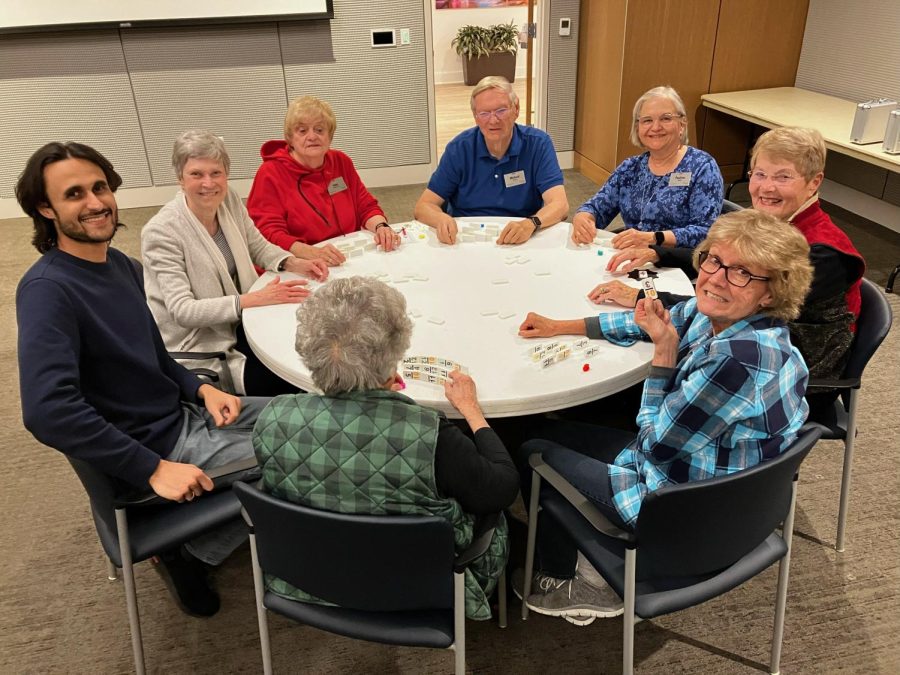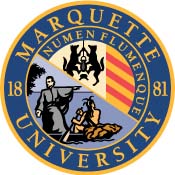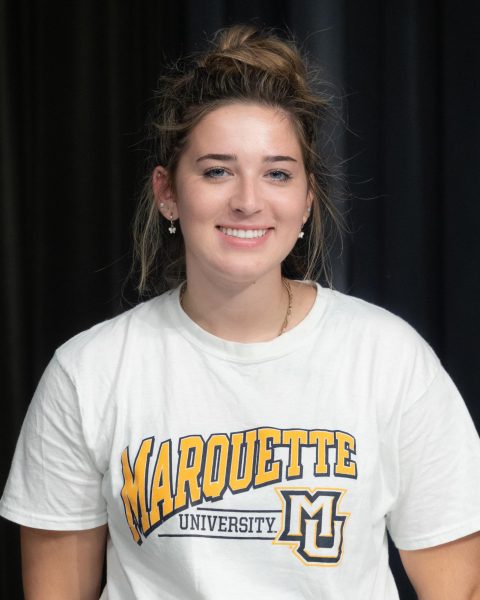Not many college campuses offer intergenerational living opportunities for students, but Marquette provides this opportunity through St. Camillus.
St. Camillus is offering a new opportunity this year that offers off-campus housing to Marquette students in exchange for weekly volunteering.
Life plan communities, like St. Camillus, allow access to several types of healthcare and living activities for senior residents all on one campus.
St. Camillus is a living space for several hundred older adults and retired Jesuits that offers different programs and services such as memory care and rehabilitation.
The life plan community, located five miles off campus in Wauwatosa, Wisconsin, provides multiple amenities for chosen students. Some of these include a $350 studio apartment or $500 one bedroom apartment, free laundry facilities and access to a fitness center with a yoga garden, golf simulator and different exercise studios. The life plan home also features a bar, with happy hour two times a week.
Weekly volunteering for at least eight hours per week is required for the students in order to live in the apartments.
Stacy Barnes, director of the Wisconsin Geriatric Education Center and associate professor of practice in the College of Nursing, said it has been a positive implementation for both the students and residents.
“We want the experience to be both positive for the residents that live here, as well as the students,” Barnes said.
Despite age gaps, the students and residents get along well, Jackie Knight, life enrichment manager at St. Camillus, said.
“My favorite part is them together — they love them, they really do,” Knight said about the students and the resident’s relationship.
Joia Wesley, a third-year graduate student and current St. Camillus resident said her living situation has exceeded her original expectations and allowed her to meet people from different generations.
Coming from an intergenerational household where her grandparents played an important role, Wesley said this living community is an opportunity to give back.
“By bridging generations and bringing together people from different age groups, you can learn a lot from that. It’s not only older adults teaching younger people, but it’s also younger people teaching older people,” Wesley said.
Antonio Martins, a current St. Camillus resident and second year in graduate school, expressed similar motivations.
“I really love to spend time with my grandmas and grandpas in Brazil, where I’m from, so when I saw that I would be living with those people, I got very excited too because I knew I was going to learn a lot,” Martins said.
Each students has the freedom to put their own twist on the volunteering, along with the flexibility to pick what they want to do when they want to do it.
Martins said he has done volunteering activities around his major and environmental studies, like watching a documentary about environmental issues, where Martins will present statistics and allow residents to give their opinion and talk about it.
“They really wanted us to do things that we think we can do with them, like things related to our major, activities we like to do in our free time,” Martins said.
Martins said the required hours do not feel like an obligation at all despite the time it takes to coordinate and plan events and often exceeds the eight hours.
It feels like a family, Martins added.
While Martins’s activities are specialized to his interests, Welsey’s volunteering is specialized to hers.
Wesley said she focuses on mental health by centering her volunteering activities like relaxation training and gratitude events. For Welsey, the bigger picture of these activities for the residents is to ultimately develop social networks and goals for their wellbeing.
Wesley said that one of her favorite aspects of this program is being able to build connections with the residents and having friends of different ages so close.
“Since I am living there, it is different than just volunteering and going back home, as it is much more intimate. I see them every day … I mean I don’t think a lot of people can say they have more than two hundred best friends,” Wesley added.
The program is only just beginning, as next year’s application is open till March 2023 for students to apply. Students selected to live in the home are chosen based on their drive and motivation to live in an intergenerational community and ability to succeed with added responsibilities and commitments.
The application requires a personal information section, a five hundred word essay, reference list and signature. Applications should be emailed to Stacy.barnes@marquette.edu by March 31 2023, and finalists will be invited to further move forward with the application process.
Any full-time Marquette student in any major — undergraduate or graduate — is welcome to apply and take a tour of the activities and apartments if interested.
This story was written by Trinity Zapotocky. She can be contacted at trinity.zapotocky@marquette.edu





